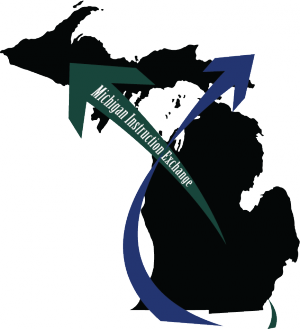MIX Conference 2018
MIX Conference 2018
Friday, August 17, 2018

Location: Charles Stewart Mott Library on the Campus of Mott Community College, Flint, Michigan
Click here to see photos from the MIX conference!
The MiALA Instruction and Information Literacy Interest Group and Mott Community College Librarians partnered to host the 4th Biennial MIX Conference (Michigan Instruction Exchange)
Fellow academic library instructors from across the state were invited to join in this continuing conversation about student engagement and library instruction.
Let's talk about Connections. How do we connect with each other, our students, our campuses, and beyond?
The conference began with a keynote address from Dr. Reva Curry, Vice President of Instruction and Learning Services at Delta College.
Connections: Emerging Relationships between College Librarians, Faculty, Staff, and Administration
Higher Education professionals are challenged to make connections across divisions, departments, and work units to integrate our services and resources into a seamless network of support. The Higher Learning Commission ranks institutional systems as reactive, systematic, aligned or integrated, with the latter being the most desirable yet the most difficult to achieve. The benefits and challenges of creating and sustaining relationships between College Librarians, Faculty, Staff, and Administration in a climate of change in higher education is explored.
Agenda
Cost:
MiALA Members $20.00 (included lunch)
non-MiALA members $40.00 (included lunch)
LIS students Free (included lunch)
Breakout Session Descriptions
The Story of the Assignment that Works: Connecting Students, Faculty, and Librarians to Campus...and Then Changing the World
Kristy Motz, Ferris State University
Looking for a practical connection to faculty and students? Come learn about The Assignment That Works, a faculty-librarian collaboration that mixes a persuasive paper assignment, primary sources, and library instruction with this challenge to students:
1. Select a topic about your university that intrigues you.
2. Visit the University Archives and learn to research information about the campus past.
3. Attend a library instruction session to undercover more scholarly sources.
4. Change your world.
Building Stronger Bridges: Holistic Engagement and Multi-directional Mentorship with a Summer Student Success Program
Naomi Binnie, University of Michigan
Alexandra Rivera, University of Michigan
Jesus Espinoza, University of Michigan
Sheila Garcia, University of Michigan
The Summer Bridge Scholars program at the University of Michigan welcomes students, predominantly from underserved communities, for an intensive summer semester. We will discuss our process in including resident librarians in planning instruction, the residents' growth as first-time instructors and the impact on students. Our approach features multi-directional mentorship, allowing for a reciprocal process of teaching and learning by all involved including faculty librarians, resident librarians, student peer educators, and the students they instruct.
How a Strategic Library Instruction Plan Can Help Build Stronger and More Effective Connections with Faculty and Students
Laura Walton, Cornerstone University
Gina Bolger, Cornerstone University
Jeff Lash, Cornerstone University
Jessica Shuck, Cornerstone University
Library instruction is most effective when librarians can work closely with faculty. By leveraging key faculty relationships within the core curriculum, librarians were able to design a strategic plan that connected with students at multiple points in their program. This allowed the librarians and faculty members to further students' information literacy skills as they progressed through their academic journey. Learn how to implement intentional instruction that will allow your faculty and student relationships to flourish.
Flipping the Engineering Library Instruction Session
Edward Eckel, Western Michigan University
It can be very difficult to address higher order research skills in library instruction while balancing the need to cover the mechanics of searching: where to go and what to click on. This presentation will discuss a flipped classroom approach to a library session for a freshman engineering writing class that focuses in-class time on higher-level skills such as topic development and database search strategies. Implications for student engagement and assessment will be shared.
Connecting with Students Through Instructional Design: Using Chunking, Scaffolding, and Collaborative Learning to Teach ALA Style to Duel-Enrolled Students
Jessica Wright, Davenport University
Many high school students choose to take college courses as dual-enrolled students. Providing effective instruction to this population can pose some unique challenges. This presentation will examine how the instructional design strategies of chunking, scaffolding, and collaborative learning were applied to a 2-hour workshop on American Psychological Association (APA) Style taught to a marketing class of dual-enrolled students. Additional Handout
Transitioning from Face-to-Face to Synchronous and Asynchronous Online Library Instruction: The Case of the Plagiarism Workshop
Elizabeth Svoboda, University of Michigan - Flint
Declining attendance at an on-campus plagiarism workshop over several semesters prompted the presenter to try a different approach, namely to an online environment. The presenter will give her motivations for moving to an online environment and discuss challenges, best practices, and tips about transitioning from face-to-face to both a synchronous webinar and an asynchronous online module for use in the virtual classroom.